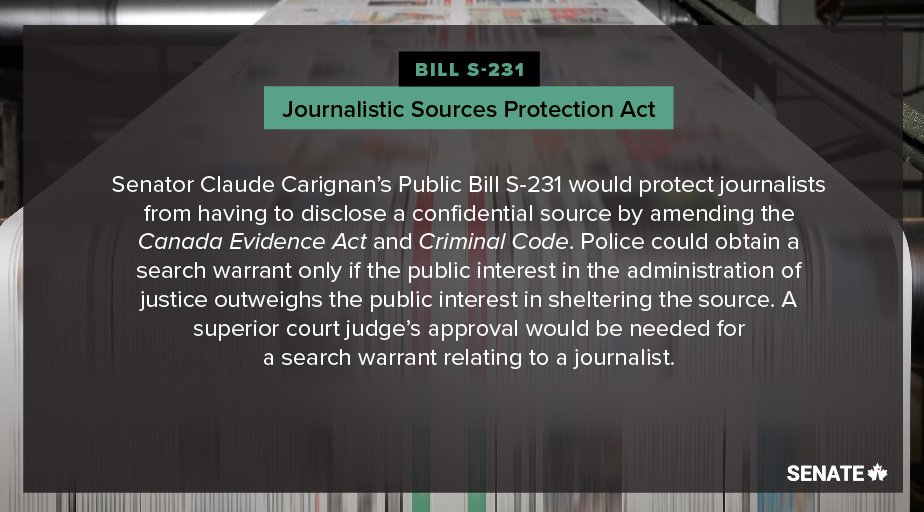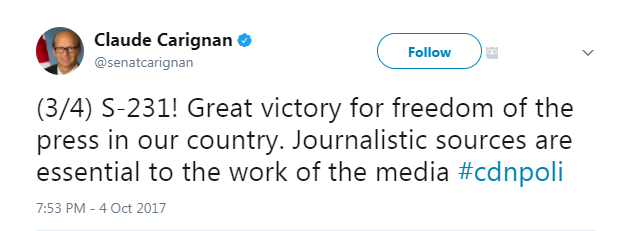Protection of journalists' sources: Senator Carignan’s bill is adopted

Tags
Senator Claude Carignan’s Bill S-231 was passed by the House of Commons on Wednesday, October 4, 2017.
In concrete terms, the bill recognizes the fundamental role in our democracy played by investigative journalists, their sources and whistle-blowers. It will protect the journalistic source privilege that had not yet been expressly recognized in our legislation up until now.
The bill provides procedural tools that will help journalists meet the obligation of confidentiality to their sources and mandates that only a superior court judge would be able to issue a search warrant when deemed to be in the public interest.
Last year, Canadians, as well as the political, legal and journalistic communities, were dismayed to learn that the Montreal police force and the Sûreté du Québec placed a number of journalists under electronic surveillance after seeking and obtaining warrants.
Journalistic sources and whistleblowers play a critical role in our society, keeping a check on those in power. But to do so, these individuals take on a great deal of personal risk. This bill will protect their anonymity — and as a result, it will protect our democracy.
Now passed by both houses, the bill will become law once the governor-general gives it her stamp of approval, otherwise known as Royal Assent.
Read Senator Carignan’s remarks on this bill from December 5, 2016
Senator Claude Carignan’s Bill S-231 was passed by the House of Commons on Wednesday, October 4, 2017.
In concrete terms, the bill recognizes the fundamental role in our democracy played by investigative journalists, their sources and whistle-blowers. It will protect the journalistic source privilege that had not yet been expressly recognized in our legislation up until now.
The bill provides procedural tools that will help journalists meet the obligation of confidentiality to their sources and mandates that only a superior court judge would be able to issue a search warrant when deemed to be in the public interest.
Last year, Canadians, as well as the political, legal and journalistic communities, were dismayed to learn that the Montreal police force and the Sûreté du Québec placed a number of journalists under electronic surveillance after seeking and obtaining warrants.
Journalistic sources and whistleblowers play a critical role in our society, keeping a check on those in power. But to do so, these individuals take on a great deal of personal risk. This bill will protect their anonymity — and as a result, it will protect our democracy.
Now passed by both houses, the bill will become law once the governor-general gives it her stamp of approval, otherwise known as Royal Assent.
Read Senator Carignan’s remarks on this bill from December 5, 2016




